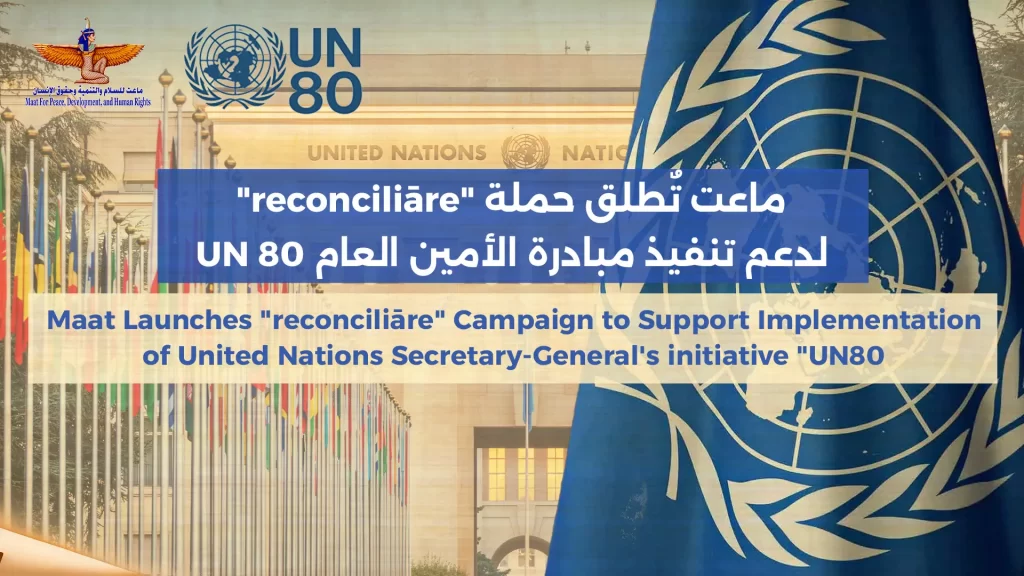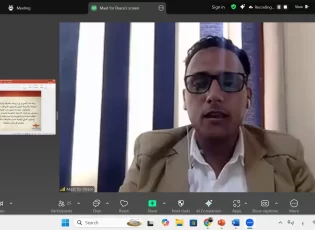Drigue Asefa: 99% civilians in Tigray need humanitarian access
Haftum and Likidan: Ethiopian forces continue to target doctors to prevent them from practicing their work
Fana Pillay: We recommend the African Union to impose severe sanctions due to Ethiopian and Eritrean violations
Pasant Essam El Din: We stress coordination between African and UN mechanisms to stop the state of war in Tigray
On the sidelines of its participation in the activities of the 51st session of the Human Rights Council in Switzerland, the Maat Foundation for Peace, Development and Human Rights organized a virtual event on the human rights situation in Tigray, especially after the renewed military clashes since last August. The event was titled “Breaking the armistice in Tigray .. a way to return to the humanitarian crisis”. The event dealt with the causes and repercussions of the recent renewed clashes in the Tigray region, the humanitarian situation in the region, as well as international and regional efforts towards the current crisis.
During the event, Dereje T. Asefa, member of the Tigray Federation in Europe, emphasized the continuation of violations and atrocities committed against civilians in the Tigray region, and called for the need for ensuring urgent humanitarian access, stressing that 99% of civilians need humanitarian supplies and assistance. Asefa called on the international community to intervene urgently and ensure the application of the rules of international humanitarian law, and recommended the need to open urgent investigations into the violations committed by the Ethiopian-Eritrean forces in the region.

Dr. Haftom A. Weldekidan, a Tigrayan doctor specialist in the affairs of humanitarian supplies, confirmed that the Ethiopian government is targeting doctors to prevent them from performing their duties and to protect the victims and the injured. Weldekidan also pointed out that the people of the region are suffering constantly due to food insecurity in the region. In addition to preventing the entry of aid, food and health supplies, all crops and fertilizers were burned during the last farming season after the outbreak of war and renewed skirmishes, noting that the Eritrean forces are still violating the rights of the territory and its people.
On her part, fana baley, an expert on international Tigrayan affairs, said that the international community ignores the Tigray crisis despite the increase in the number of victims. Pillai added that although the US government imposes continuous sanctions on Russia's practices that violate international law and international humanitarian law in Ukraine, it doesn’t take similar measures in the case of Ethiopia and East Africa. She also recommended African countries, especially East African ones, to cooperate and mediate within the African Union to impose harsh sanctions on Ethiopian and Eritrean practices in the Tigray region in order to help restore peace and security in the region.
Finally, Pasant Essam El Din, Deputy Director of the Sustainable Development Unit at Maat, stressed the need to take all international and regional efforts to support the Tigray victims in their quest for survival despite the challenges and obstacles they face, internally and externally. Therefore, Essam El Din stressed the need for coordination between African and international mechanisms to settle the crisis of the Tigray region, and return to the truce agreed upon in March 2022.
shortlink: https://maatpeace.org/en/?p=36802











